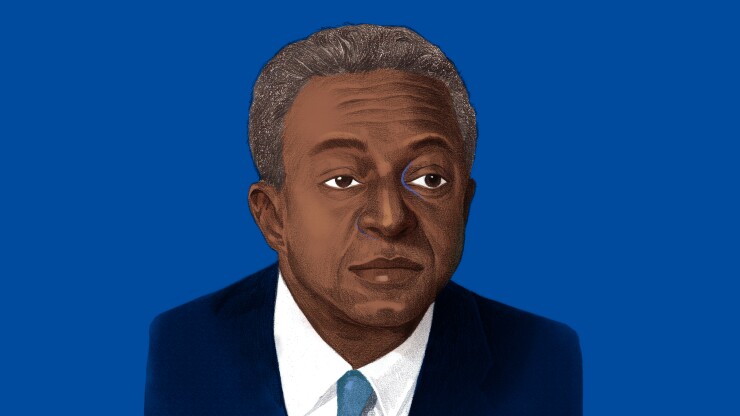He climbed the corporate greasy pole high enough to become the first Black CEO of a leading Wall Street brokerage.
But he had to leave Merrill Lynch six years later amid the chaos brought on by the 2007 housing market crash. He had the honor of being named the "Most Powerful Black Executive in America" in 2002 by Fortune Magazine. But he was later blamed for setting the stage for Merrill's eventual sale to Bank of America, a deal that some say has left the firm in the shadow of its banking partner.
Such have been the ups and downs in the career of Stanley O'Neal, the first Black CEO of a large Wall Street brokerage. Whether his downfall was the result of his own poor decisions rather than simple bad timing is still a matter of debate. He was certainly far from the only Wall Street CEO to see his reputation tarnished by a market crash that very few saw coming.
What's beyond dispute are the immense odds he had to overcome to reach the C-suite. O'Neal is the grandson of a former slave and was born in Roanoke, Alabama, in 1951, into impoverished circumstances.
Despite those disadvantages, he was able to make the most of newly opened opportunities and obtain a formidable education. When he was 12, his family moved to Atlanta and enrolled him in a recently integrated school.
O'Neal went on to study industrial administration at the General Motors Institute (now Kettering University), working part-time on an assembly line at a GM plant. A scholarship from GM allowed him to attend Harvard Business School, where he earned an MBA in finance in 1978.
O'Neal joined Merrill Lynch in 1986 as an investment banker in its high-yield finance group. He rose to hold various senior positions, becoming the head of the firm's capital markets group, the co-head of its corporate and institutional client group and chief financial officer.
In 2000, O'Neal became the president of Merrill's U.S. private client group, which then oversaw the firm's brokerage business. He pushed through a restructuring while also introducing new technologies and products.
O'Neal was promoted to president and chief operating officer of Merrill Lynch in 2001. His appointment as CEO the following year made him the first person to lead the firm who had not started his career as a broker.
O'Neal proved a steady hand through several market shocks, including the aftermath of the 9/11 attacks, the Enron scandal and the dot-com bust. He's credited for diversifying the firm's revenue sources and extending its international presence. He's also sometimes blamed for pursuing risky investments in subprime mortgages and other complex securities.
The results were promising at first. In 2006, Merrill Lynch posted the highest annual earnings thus far in in its history. The following year, though, saw the firm suffer its largest quarterly loss ever amid the collapse of the subprime mortgage market.
Like many Wall Street firms, Merrill stood on the precipice of disaster. O'Neal attempted to organize a rescue by negotiating a merger with Wachovia. After that fell through, he resigned. It was left to his successor, John Thain, to broker the sale to Bank of America in 2008.
O'Neal has largely stayed out of the limelight since leaving Merrill. Over the years, he has served on the boards of prominent companies such as Alcoa, General Motors and the lightweight metals manufacturer Arconic. Through all the ups and downs, the improbability of his story was never lost on O'Neal.
In a 2003 interview with Newsweek, he said, "Let's face it: If I had been born 30 years earlier, there's no way that we'd ever be sitting here, having this conversation."
Read the other stories in this series:
Legendary role models whose achievements laid the foundation How LeCount Davis, history's first Black CFP, is still giving back June Middleton made history on Wall Street, then left the industry Maggie Lena Walker triumphed in the Jim Crow era Gerald B. Smith blazed a trail in bonds






